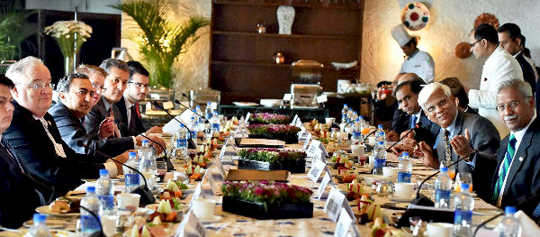Washington, Feb 15: A record number of 27 US Congressmen will visit India later this month, reflecting the growing bipartisan support for strengthening the Indo-US strategic ties.

The top lawmakers from both the Republican and Democratic parties are visiting India in two separate delegations.
Describing this as an important development, Navtej Sarna, Indian ambassador to the US, said such visit is reflective of the efforts on the part of the US to "strengthen and build" on the bipartisan support that they have in the US Congress for India-US relations.
Congressional records indicate that this is the largest ever travel of US lawmakers to India.
The largest delegation of 19 Congressmen, being organised by the prestigious Aspen Institute, would be in India from February 20 to 25 with stops in New Delhi and Hyderabad.
During the visit, the lawmakers are scheduled to have a wide range of meetings from top government officials, politicians, members of the think-tank bodies and non-governmental organisations.
Another bipartisan Congressional delegation (or Codel) of eight lawmakers, being led by Bob Goodlatte, chairman of powerful House Judiciary Committee, would be in India from February 20 to 23, visiting New Delhi and Bangalore.
The delegation includes Congressman George Holding, Co-Chair of the India Caucus, Jason Smit and Dave Trott.
All four are from the Republican party.
The Democratic members to the delegations include Congresswoman Sheila Jackson Lee, Congressmen Hank Johnson, David Ciciline and Henry Cuellar.
The visit, Sarna said would let these lawmakers first hand see for themselves, the political vibrancy of India, the economic reforms that are happening, and also for them to identify potential areas of engagement.
"This is increasingly important as the new administration comes into," he said.
"We are very fortunate that there are two delegations totaling 27 Congressmen are travelling to India this month, which is not a small figure," he said.





Comments
Add new comment